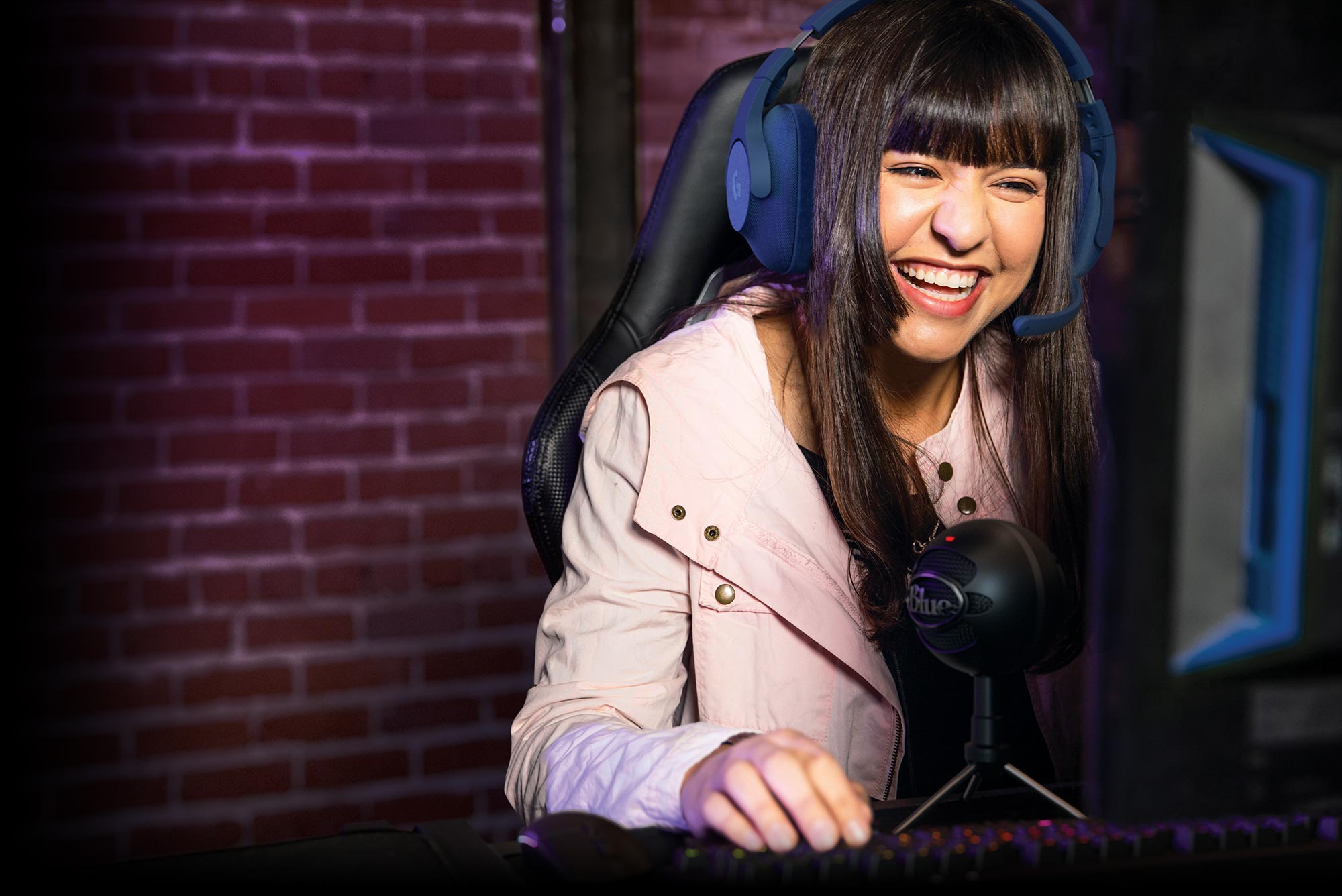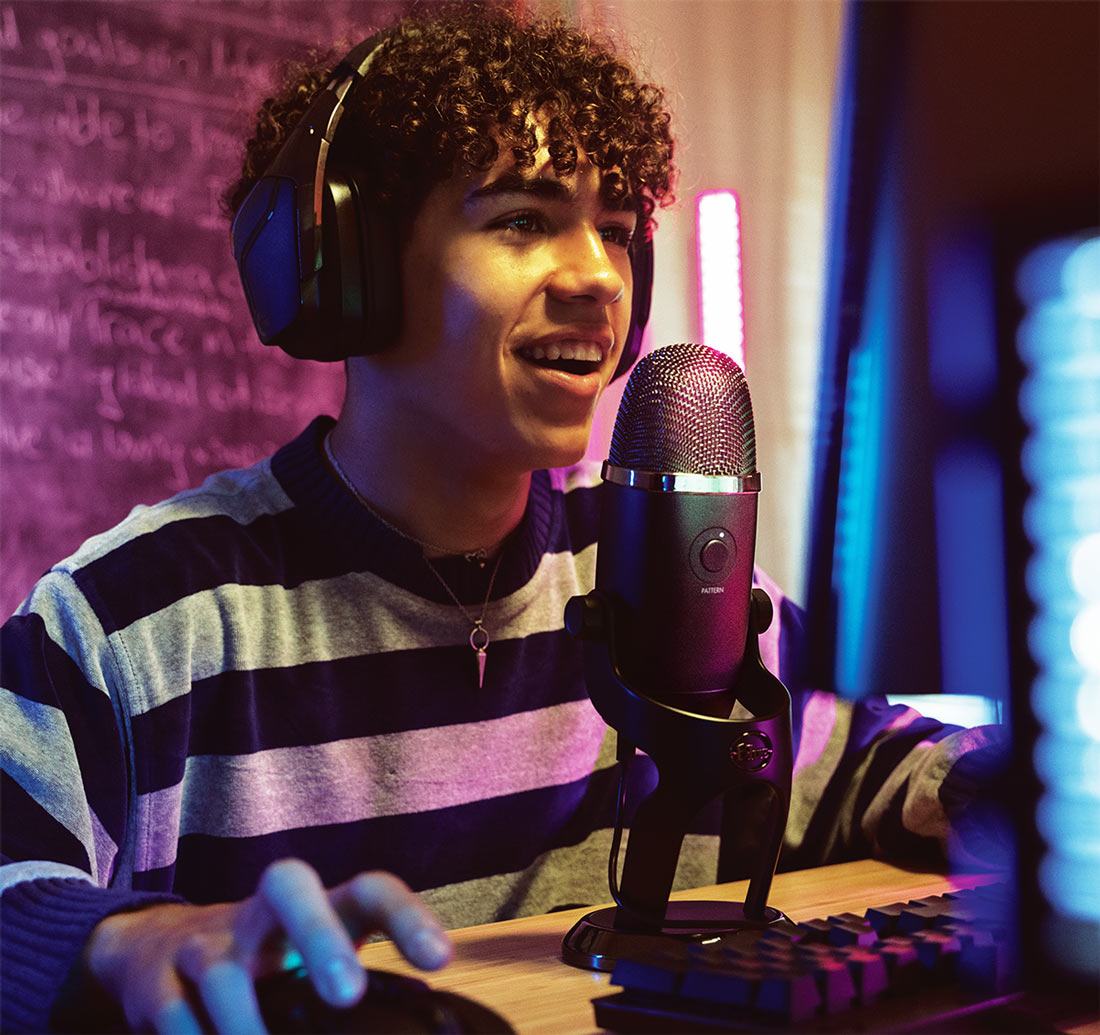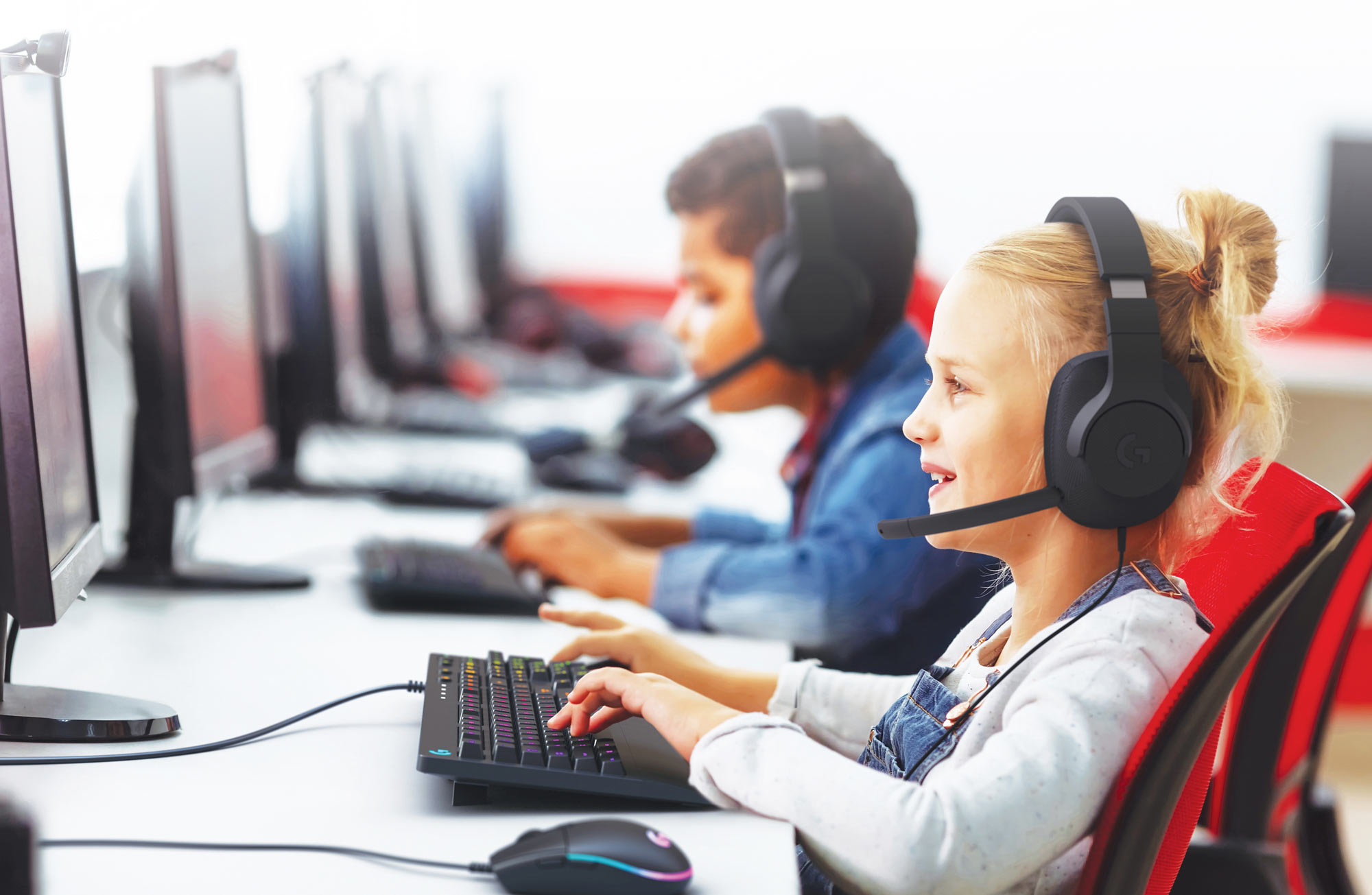Tapping into budding marketers and creators presents an opportunity to expand esports programs significantly. Creating roles for these students promotes inclusivity and engagement, and helps them hone their skills and potentially forge future career paths.

Photos courtesy of Logitech
Tapping into budding marketers and creators presents an opportunity to expand esports programs significantly. Creating roles for these students promotes inclusivity and engagement, and helps them hone their skills and potentially forge future career paths.
s a mother of two young boys, for me there’s no escaping today’s popular gaming culture. Whether it’s connecting with friends after school, or gaming at the community rec center while my older son is perfecting his jump shot, gaming has impacted the way my kids—and kids across the world—interact and socialize. Today, 91 percent of kids ages 2 to 17 are considered gamers.¹ Whether they’re building new worlds with their peers in Minecraft or communicating in learning apps like Class Dojo, gamification in learning is everywhere. This is why implementing esports into education can be a game changer—pun intended.
With worldwide gamers set to surpass 3.2 billion in 2023,² schools across the country have an increased focus on developing esports programs to meet students where they are and harness the power of gaming to drive educational outcomes.
In speaking with schools on a daily basis, I’ve found that, for many of them, building an esports program is a new concept. And those who have started programs are continuing to determine how they can align their esports initiatives with their higher-level goals and missions.

Enabling social-emotional learning (SEL) and encouraging more inclusivity among students is top of mind for education institutions across the country as they consider investing in new programs and technology.
Imagine the impact esports could have if programs were expanded to include roles outside of just players and coaches. I have found that there are two key ways esports programs can be transformed to not only drive greater student outcomes but allow schools to connect more deeply with their local communities.
1. Make Content Creation, Marketing, and Broadcasting Pillars of Your Program
While the gaming culture has exploded among our youth, the creator culture is even more prevalent. My nine-year-old son’s school has latched onto this movement. Last year, his summer reading assignment required that he complete a project to show how well he retained each book. The list of projects included the tried and true activities of the good ole days—build a diorama, write an alternate ending, pick your favorite character and explain why—and then a new option: recreate and record your favorite scene from the book and recruit family members to play the characters. So which project did my nine-year-old select? I’ll give you a hint—my reenactment of Hermione Granger was Oscar-worthy!
Over the past few years, we’ve seen content creation and live streaming become a big component of esports. In fact, professional esports viewership is expected to reach 577 million by 2024.⁴ Have you ever seen an esports tournament streamed on Twitch? If so, you may not have considered all the preparation and expertise that went into creating a seamless viewing experience.
Tapping into budding marketers and creators presents an opportunity to expand esports programs significantly. Creating roles for these students promotes inclusivity and engagement, and helps them hone their skills and potentially forge future career paths.
Roles I’ve seen many schools add to their team rosters include:
- Shoutcasting (an esports commentator)
- Production
- Social Media
- Graphic Design
- Journalism
- Event Planning

2. Engaging Local Communities
I travel for work often. My kids’ grandparents live in different states. Alumni and other school supporters have busy schedules. Unfortunately, I can’t make it to every school event I’d like and I hate to miss a moment. That’s why I love that my sons’ school streams their basketball games, choir concerts, and esports competitions—so I can be engaged and included from afar.
Many of the schools I work with are exploring modern ways of engaging parents and their local community more often and on a deeper level. By incorporating the roles for marketing, content creation, and broadcasting into esports programs, parents and community members can be a part of the excitement—much like we are in traditional athletics.
A great way to leverage the efforts and expertise of students who hold creator roles on esports teams is to enlist them to plan live and virtual events. This empowers them to build their organizational skills, helps boost their confidence, and gives them a sense of accomplishment. Plus, it gives supporters a way to follow and cheer on their teams.
I have seen technology and its adoption in education change significantly in the past few years. Setting up an esports program is no small feat, and the monetary investment can seem daunting. However, the benefits present a wealth of opportunity, not just in the education space but in entire communities.
In 2021, esports generated approximately $243 million in revenue in the U.S.⁵ By taking advantage of the popularity of esports, we as a society can help support our youth in their social, emotional, and professional development. In turn, they’ll develop skills for the jobs of tomorrow. Let’s lay the foundation for positive economic impact, more skilled workforces, and stronger communities. I truly believe investing in thriving esports programs is a win for all!
A great way to leverage the efforts and expertise of students who hold creator roles on esports teams is to enlist them to plan live and virtual events. This empowers them to build their organizational skills, helps boost their confidence, and gives them a sense of accomplishment.
Sources:
- https://www.nbcnews.com/news/world/ready-play-91-percent-kids-are-gamers-flna120056
- Newzoo | Global Games Market Premium October 2021. Gamers playing on PC/Console/Mobile
- Yuchun Zhong, Kai Guo, Jiahong Su, Samuel Kai Wah Chu, The impact of esports participation on the development of 21st century skills in youth: A systematic review, Computers & Education, Volume 191, 2022, 104640,ISSN 360-1315, https://doi.org/10.1016/j.compedu.2022.104640
- Newzoo | Global Esports and Streaming Market Report 2021
- https://www.stlouisfed.org/open-vault/2022/aug/rise-of-esports-industry

For the past two and a half years at Logitech, Gluth has helped lead a team of education experts focused on developing solutions and strategies that make learning easier, more collaborative, and more productive. Together, they’ve successfully built a full portfolio of products that make an impact at multiple learning levels.
Gluth leverages her 16-plus years of channel experience and relationships to navigate the challenging education landscape, ensuring the value of Logitech and the role it plays in the future of education is known far and wide.